|
Contributing a sound track made from walks in Sydney Gardens, Bath and the Botanic Gardens in Adelaide. Echoes and resonances of the work in South Australia last year beginning to seep into the work. Listen to the birds. The white settlers didnt like the sound of the indigeneous birds so they imported English song birds whilst exporting the bones of the indigenous people. Colonial extraction at its most brutal. Re-reading Fanon again.
0 Comments
A circular walk towards and through the site of the former Inglescombe Nursery (Wares) from Bath City Farm to From the Land and back. A memorable day. This write up has been a long time coming. Maybe because it took place on April Fools Day, No fools walking on this though! The report below is ghosted from an interview I gave for a colleague in the Research Office at Bath Spa University, many thanks for the hard work doing the write up.
Read the article here or scroll through below Wednesday 22 February 2023 19.00-20.30 @ BRLSI Elwin Room Colonial and Botanical Heritage in Two Spa Towns: Bath in Britain and Bath in Jamaica. A talk by Dr Christina Horvath This talk seeks to decrypt the colonial connections of two spa towns of the same name, Bath in Somerset, England, and Bath in the parish of St Thomas, Jamaica and explore how their environment and green spaces have been impacted by their shared colonial history. Bath in Somerset benefited from profit drawn from enslaved labour in sugar plantations in the Caribbean to create an attractive neo-Palladian cityscape with outstanding landscape architecture whose ‘universal value’ was recognized by UNESCO in 1987. Bath in Jamaica, in contrast, witnessed colonisation and anti-colonial struggle which resulted in the creation of spa facilities and a botanical garden but also in the destruction of some of the original botanical heritage as well as some of the built heritage. The comparison of both hot springs provides opportunities for a reflection on present-day inequalities within the heritage sector. The talk is free join in person in Bath(UK) or online. Register here https://www.eventbrite.co.uk/e/colonial-and-botanical-heritages-in-two-spa-towns-tickets-462001126807 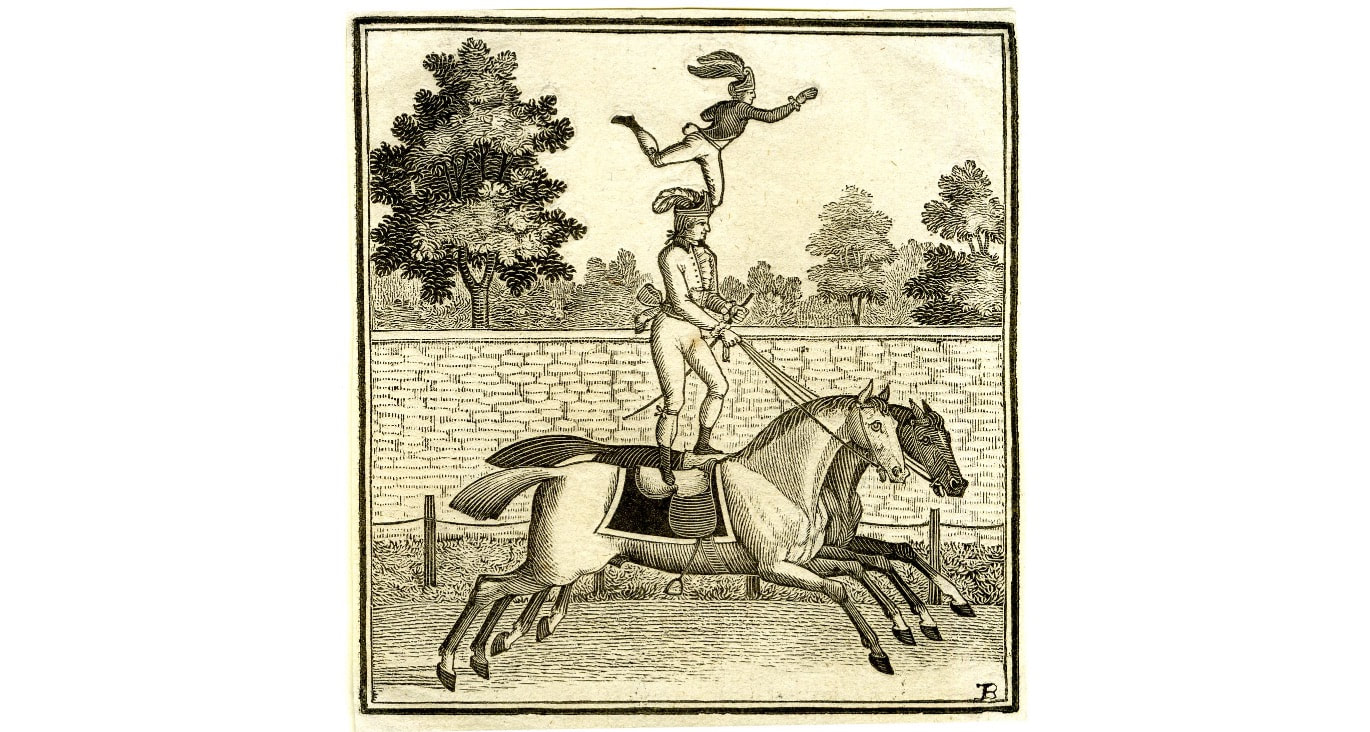 Botanical Encounters 8 March: On the Resilience of the Dead Silence and the Crisis of Imagination Wednesday 8th March 2023 19.00-20.30 @ BRLSI, Elwin Room On the Resilience of the Dead Silence and the Crisis of Imagination: Walking and Asking Questions in Bath’s Sydney Gardens. A talk by Dr Richard White In her 1814 novel, Mansfield Park, Jane Austen’s offers a fictional account of how a conversation on slave-ownership was closed down through ‘dead silence’. Between 2019 and 2021 Dr Richard White hosted a series of non-fictional walks, Botany Empire and Deep Time, traversing Sydney Gardens, where Austen famously once walked. The commission from the Lottery funded Sydney Gardens project generated three walking guides, numerous public walks and a performance at the Bath Tree-weekender in 2021. In this presentation Richard will share some of the suppressed knowledges and unheard stories emerging from his work; he will discuss the reception of the walks in the context of the toppling of the Colston statue in Bristol and Bath’s UNESCO World Heritage status. Two hundred years after the publication of Mansfield Park, the presentation asks the question, how resilient is the ‘dead silence’ and why should we care? The talk is free to join in person in Bath(UK) or online. Register here https://www.eventbrite.co.uk/e/on-the-resilience-of-the-dead-silence-and-the-crisis-of-imagination-tickets-462004015447 Botanical Encounters March 11: a walk The following Saturday March 11 a walk is presented as a follow up to this presentation, the walk reprises one which was cancelled as unsuitable for the Gala Reopening of Sydney Gardens in 2022. More details here The walk is also free but places are strictly limited and registration is essential. Register here https://www.eventbrite.co.uk/e/on-the-resilience-of-the-dead-silence-and-the-crisis-of-imagination-a-walk-tickets-462036051267 Talks and walks are presented as part of Botanical Encounters. The project aims to disentangle Bath’s often overlooked colonial legacies by looking at the impact of colonial voyages and conquest, imperial science, botanical and arts collections and the global displacement of plants and humans. More here
Tracing feral routes and ecologies
between the site of Ware’s Nursery and Bath City Farm; Prospecting for local histories of growing; Exploring the potential of regenerative farming. A scoping and capacity building project November 2022 to April 2023 nurturing conversations and networks through the development and delivery of a public walk connecting across the Whiteway Road in Bath Building on the creative and collaborative working practices of Blooming Whiteway and Bath City Farm and exploring the spectral presence of Ware’s Nurseries, Tulips and Tractors will explore local human and more-than-human networks, horticultural and agricultural histories and relationships with the land. The project contributes to a learning relationship with Bath Spa University towards funded activity sharing knowledge and building local resilience and capacity. Tulips and Tractors aims to
Activity: Tulips and Tractors is focused on the development and delivery of a circular walk. An informal identification of possible wildlife pathways crossing human constructed boundaries will inform the route of a curated walk. Engagement is built through mapping, walking and asking questions, identifying connected green spaces and informal commons. Gathering stories, artwork, local memories and wildlife data will open conversations on place and belonging as well as issues of land use, land ownership, horticulture and agriculture. A boot from the installation which will be happening at Bath Jewish Burial Ground resonates with the Orwellian culture wars currently rumbling in the city. Sydney Gardens Gala…. a skirmish in the culture wars On September 11 I was planning to split my day between setting up the Honouring Esther installation and hosting a couple of walks in Sydney Gardens, Bath. This was to have been a reprise of the work I completed last November on Botany, Empire and Deep Time. I was looking forward to another chance to use the blue tooth headset/‘silent disco’ kit that had worked so splendidly last year hosting a sound walking and questioning experience. It was to have been presented as a Victorian spectacle by the ‘gentleman Perambulist’ himself, weaving amid fancy-dress red coated dragoons and crowds of make-believe Jane Austens towards the lost grotto and back. Sadly within a few days of the invitation being made it was withdrawn and I was informed that certain unnamed ‘powers-that-be’ considered the content ‘inappropriate for a celebratory event’. What had begun as an invitation to make a contribution to telling the stories of Sydney Gardens in an innovative way ends in the resurgence of the White silence. Sure, some of those stories are still uncomfortable for some people but I think they need to be heard. Evidently some people prefer an induced amnesia and wish the stories and the questions that arise to remain unheard. We'll see what the Lottery evaluators make of that! Sunday 11 September, Honouring Esther, an installation,
Bath Jewish Burial Ground 11.00-16.00 A sound and moving image installation in the old cottage alongside the Burial Ground, the ‘prayer room’, showing digital work originally presented as part of the Forced Walks: Honouring Esther exhibitions. The Somerset cycle of walks in 2015 finished at here on the 70th anniversary of the liberation of the Bergen Belsen concentration camp, it will be poignant to reflect on the work today: after Brexit, with the far right in power and close to power across Europe and as the Home Office’s Hostile Climate continues undiminished. The project was co-hosted with my partner, artist, Lorna Brunstein. At the time we were shocked how our walking-in-witness referencing a Nazi Death March appeared to visually resonate with the tv shots of refugees walking through the fields of eastern Europe. What will we make of it seven years on? The route of the opening two-day walk for Honouring Esther was determined by the transposition of the route of a Nazi death march to Somerset, we walked on public rights of way as close to that route as possible. We used that core route as we were retracing part of the journey Lorna's mother, Esther was forced to take from Lodz, Poland, via Auschwitz, to the infamous concentration camp at Bergen Belsen. Walking 70 years later in Somerset it became our journey too, a number of you on this list took part and contributed to that experience. Where the line of the route in Somerset crossed the imagined line of the death march we stopped, listened to testimony, talked, asked questions and shared. Lorna and I co-hosted that walk and a year later we hosted a further walk on the actual route of the death March in Germany. More than a walk-in-witness the cycle of walks inspired by Esther Brunstein’s commitment to social justice the project continues to generate profound conversations about the resurgence of fascism and threats to human rights. The installation media is a series of short immersive films and soundscapes I produced using field footage gathered by walkers from the walks in Germany and Somerset, including media gathered by myself and a team from Bath Spa University. We are really excited to be showing the work again in Bath and we extend a welcome to all and especially to those who joined us on the walks in Germany and Somerset. We will be there through the day. The Honouring Esther archive is here. We are grateful to the Bath Jewish Burial Ground for the invitation to exhibit as part of the Combe Down Art trail (venue 7), and for the continuing support of Bath Spa University for this project. Their Only Crime Was Poverty
John Payne's booklet about the Bath Workhouse is now published The booklet sets out the facts as in the Museum of Bath at Work exhibition of 2017 and traces the story through from before the 1834 Poor Law Act to the present St Martin’s Hospital. This was the exhibition that began the Workhouse Walks programme and my collaboration with John, leading on to the Walking the Names walks that we kept going through the lock downs. ‘Workhouse to Hospital’ is on sale at £5. Once printing costs are covered, income will go the Workhouse Burial Ground Campaign and used towards getting a permanent memorial to the 3182 people who died in the workhouse and are buried in unmarked graves there. The booklet is 28 pages, printed on high quality paper, thanks to all who helped with this, especially Julian Vincent for typesetting, Jude Harris for designing the cover, and those who gave permission for the use of photos. On sale at Oldfield Park Bookshop in Moorland Road, BA2, and the Museum of Bath at Work and direct from the author If you have visited the Burial Ground recently, you will know that Parks Department have changed their mowing pattern to allow wild flowers to grow. There are already interesting plants coming up. Paths have been mown to allow easier access for walkers. Walking the Names continues supporting local residents in their opposition to plans to build housing right next to the Workhouse Chapel on Midford Road. The developer is refusing to recognise that 1107 bodies are buried there. These include John Plass, the stonemason, who was an inmate of the workhouse and supervised the building of the chapel, now a listed building. price (£5) from Oldfield Park Bookshop in Moorland Road BA2 or Museum of Bath at Work BA1. A new walking trail launches in Bath on March 28, a group hosted by Bath University is publishing a public trail identifying some of the City's connections with the Atlantic slave trade. The route invites the walker to visit a city built on the wealth generated in the trade in, and labour of, captured and enslaved Africans. The map identifies the former residencies of slave-owners and their coded memorials in the Abbey. Building on the work done by activists, researchers and artists including my own (Sweet Waters) this is the continuing story of bringing a UNESCO designated World Heritage City out of induced amnesia and denial. Engaging with Bath’s Uncomfortable Past: A creative workshop to launch a new walking trail and reflect on the legacies of slavery in Bath Thursday 25th March 18:00 – 19:30 GMT https://www.eventbrite.co.uk/e/engaging-with-baths-uncomfortable-past-through-walking-and-creativity-tickets-144784663827 We are invited to visit the ornate memorials stones in Bath's Abbey and to consider the millions of captured and enslaved people who died to produce their wealth. The route identifies some of those who exposed the horrific trade in human lives as well as some who played a part in supporting resistance to and escape from enslavement. The famous white aristocrat Wilberforce is acknowledged, of course, but what is new and long overdue is the opening to the stories of Black speakers and witnesses who came to Bath in the ongoing campaigns for freedom and civil rights. Black presence in Bath is featured. The questions on the memorialisation of this 'uncomfortable' past, this reluctant heritage, continue. The need for social repair and public acknowledgement is self evident and embodied in the UNESCO designation, the local authority and holders of the official story of Bath have yet to respond. The launch workshop with contributions from academics, artists, heritage practitioners and walkers offers an opportunity to discover this latest contribution to ending the 'dead silence' that Jane Austen noted over two hundred years ago. I am very proud to have contributed to this.
Fairfield House in Bath, once the war-time home of Haile Selassie I, Emperor of Ethiopia, his family and the government of Ethiopia in exile, was a gift to the city. . 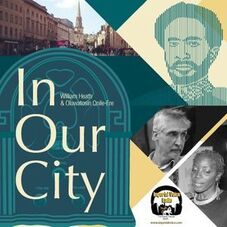 The House is a significant site of pilgrimage for Rastafarians and is becoming a centre for art and performance. One of the latest developments is a radio station, Imperial Voice Radio. I was invited on to the In Our City show for a conversation about walking, race and equality in Bath, amongst other things. Click the image to listen His Imperial Majesty came to England in 1936 following the invasion of Ethiopia by the Italian army then under the control of Mussolini's fascist government. Still pursuing a policy of appeasement to the fascist governments in Europe the UK government wanted to Selassie away from London. Bath welcomed him, and he is reported to have been very happy in the city. He was a great walker and you can still walk in his footsteps through the city , along the river and in the surrounding countryside.
Reshaping Memoryscapes in Bath and Bristol after the Fall of Colston....a call for contributions.12/15/2020 Following the amazing counter mapping workshop at 44AD artspace in Bath two years ago, the co-created storms in teacups and international street art work last year and the continuing resonances of the Sweet Waters project, I am collaborating on a publication with Dr Christina Horvath from the University of Bath. Attending to Legacies of Slave-ownership and Enslavement: Reshaping Memoryscapes in Bath and Bristol after the Fall of Colston Christina is Reader in French in the Department of Politics, Languages and International Studies, she co-hosted the international co-creation project to which I contributed strategies towards 'sensing legacies of slave-ownership'. With the fall of Colston there appears to have been a step change in activity both within the heritage institutions and outside, some may argue that that change was already underway, others may argue that the dead (white) silence is resilient and absorbent, that this storm will pass.... This proposed publication emerges from the questions and actions that have taken place in the months of the virus since the murder of George Floyd and the fall of Colston. We invite participation in extending, exploring and documenting the intensities, presences and absences of this moment. Deadline for abstracts and expressions of interest 15 Jan 2021. Details below. We are keen to embrace a range of responses from artists, academics, walkers, individuals and groups. Please share! A call for contributions The aftermath of the Colston toppling in summer 2020 has left us with a set of unanswered questions. How could Bristol’s and Bath’s historical connections with empire and the trade in, and wealth generated by captured and enslaved Africans be uncovered and made part of the official narratives? What should happen to monuments celebrating Britain’s legal slave owners and traders and how to break with the enduring ‘white silence’ in places like Bath where there is no statue to be removed and replaced? What is the role of a memorial today? Is erecting statues or monuments the most efficient way of making reluctant past visible in a city’s memoryscape? If silence is complicity, is acknowledging institutionally forgotten legacies of the slave trade sufficient to take responsibility for what happened in the past? Do references to the Abolitionist movement in Bath and Bristol and the anti-slavery movement and support for the Underground Railway in the USA risk obscuring white privilege and draw attention away from Black resistance? Are discussions about modern-day slavery and human trafficking a necessary part of the conversation about trans-Atlantic slavery legacies or rather a way to divert attention from past responsibilities and present-day inequalities? These are some of the current debates this collective volume seeks to engage with by looking at the most recent attempts to engage with colonial history in Bristol and Bath and explore the two cities’ links with the transatlantic trade in enslaved Africans. The volume, to be proposed to Policy Press, Bristol, aims to bring together researchers, artists, activists, institutions, teachers, curators and other stakeholders to reflect on both cities’ changing memoryscapes and various strategies enabling different communities and stakeholders to be part of the conversation. We are inviting contributions dealing, in particular, with the following questions: • How to avoid debates about the past that remain confined to the realms of experts, curators and administrators without involving in the conversation representatives of broader civil society? How can communities of stakeholders engage in collaboration with institutions and what are the pitfalls of often unequal dialogs with institutions? • What strategies should be adopted to make hidden connections with historic legacies of the trade in captured and enslaved Africans visible? What is the role of artists, researchers and activists in this process? How can unequal power relations between these groups be balanced and mitigated? • Is it possible to decolonise exhibits, buildings, institutions and memorials? How to present collections derived from a contested past to encourage fairer representations of the enslaved and promote more equal futures? • Whose story should be remembered and how should it be presented? How can museums critically reflect on their own histories and collections in collaboration with their audiences and stakeholders? • Can similar strategies be used to shape Bristol’s and Bath’s memoryscapes or should local differences be recognised to elaborate effective ways of engaging with the past? • How can young audiences be involved in the current debate? How can artistic or walking practices promote an active and democratic engagement? Contributions can be theoretical or arts- or practice-based. 250-word abstracts accompanied by a short biography should be sent to [email protected] and [email protected] by 15th January 2021. Accepted contributions should be submitted by September 30th 2021 https://www.co-creation-network.org/call-for-contributions-for-a-collective-volume
|
Archives
February 2024
Categories
All
|
||||||||||||||||
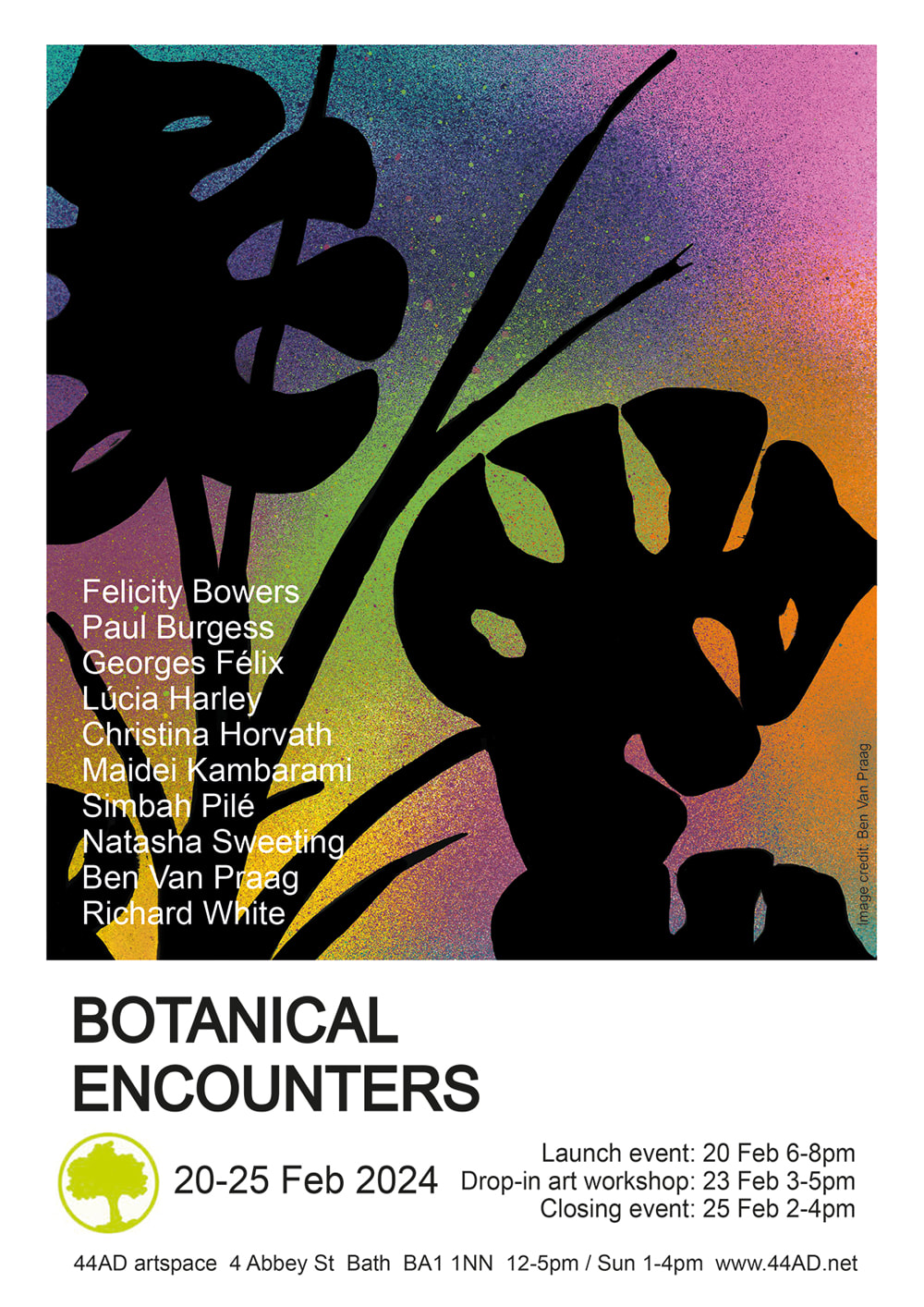
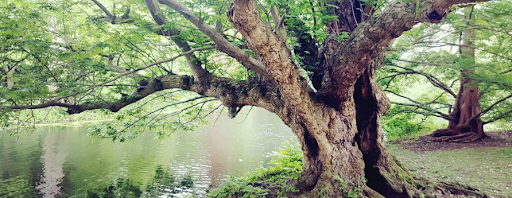
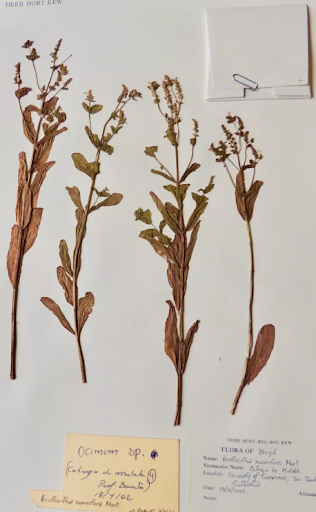
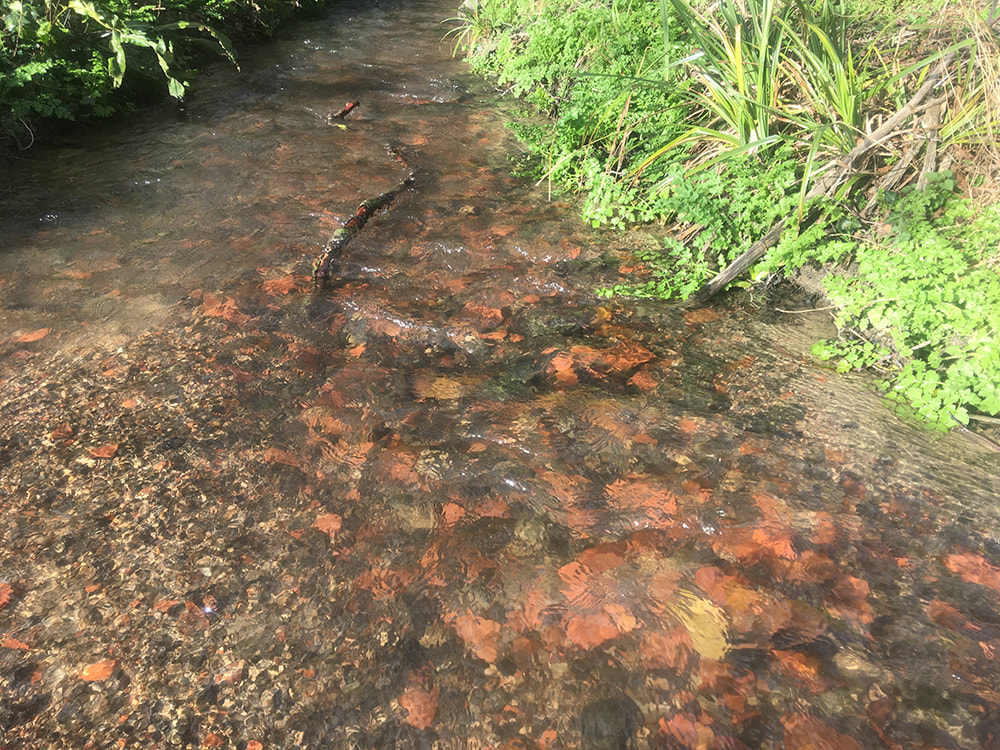
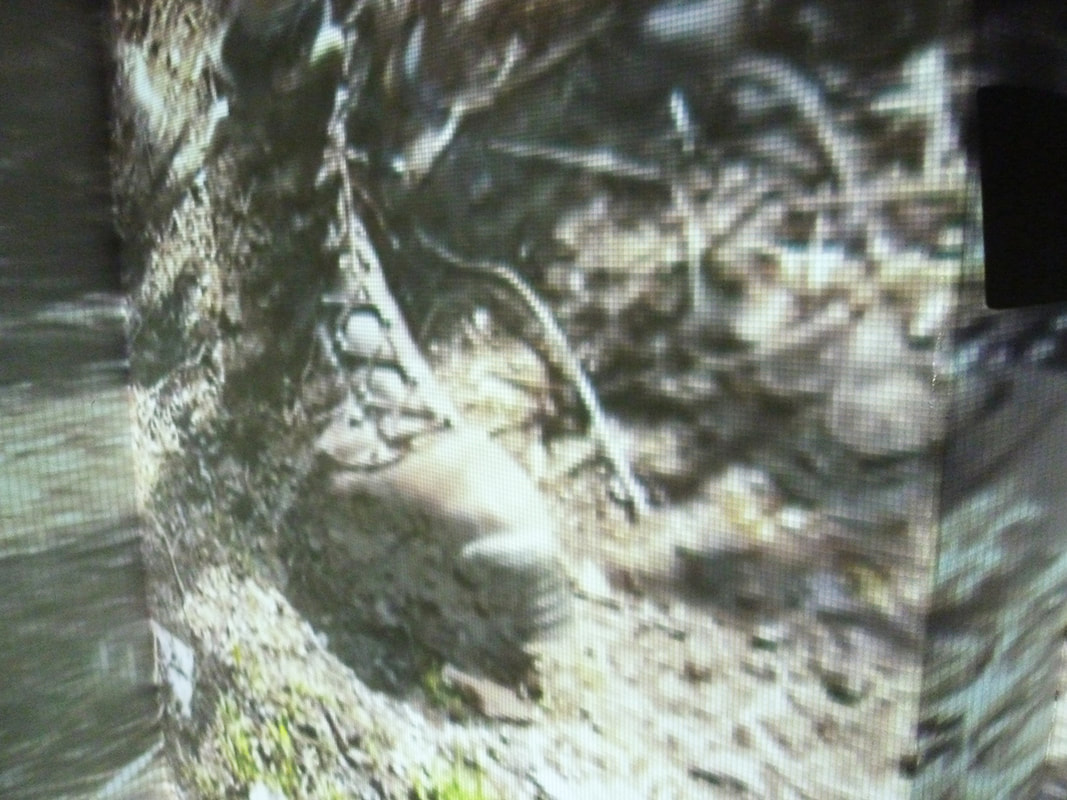
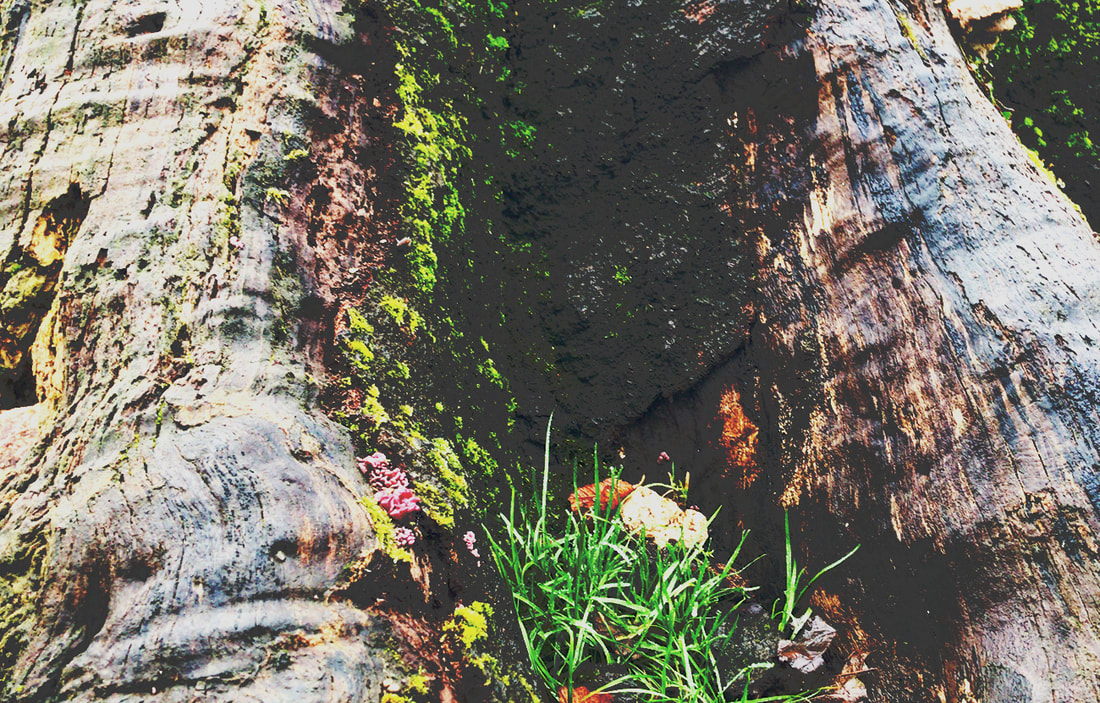
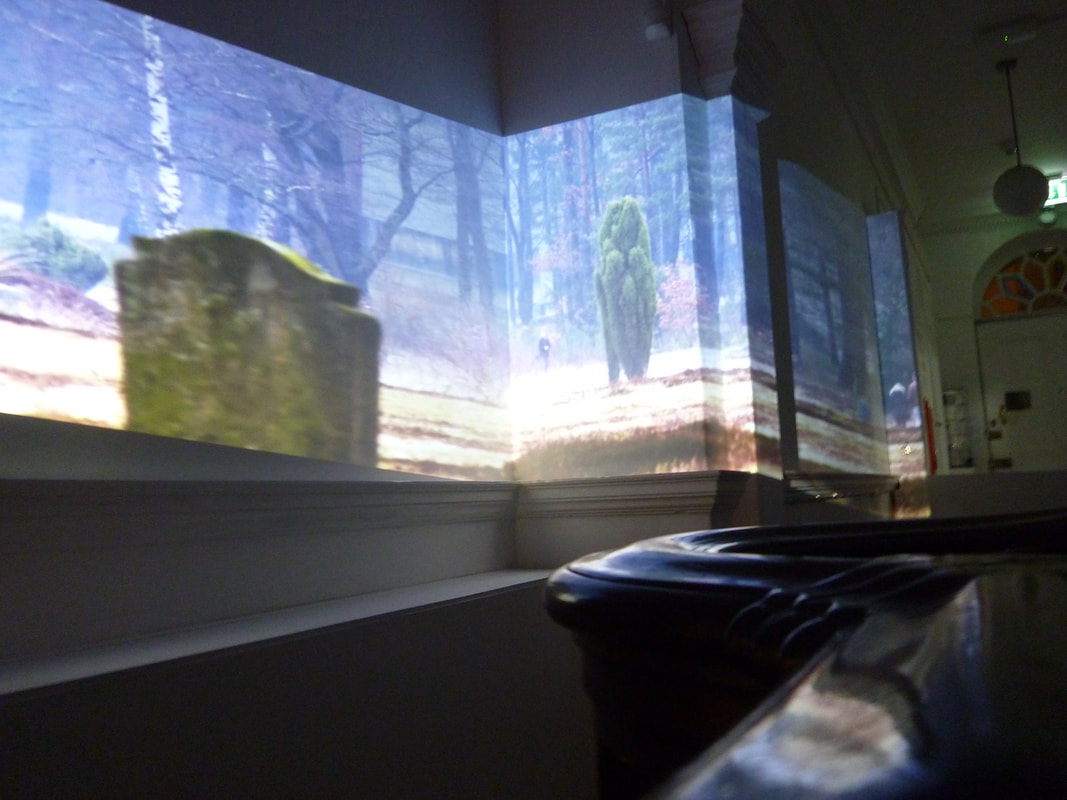
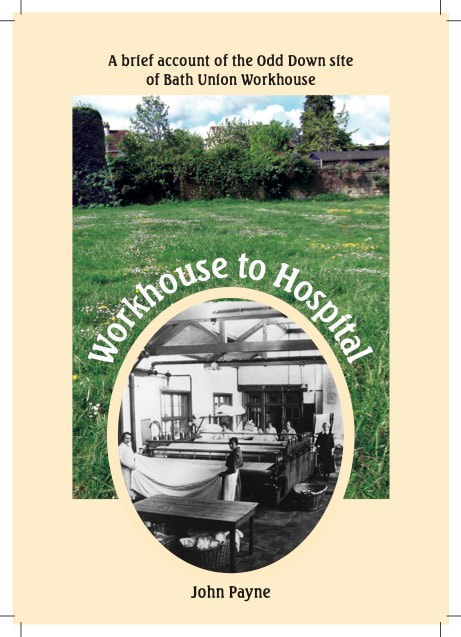
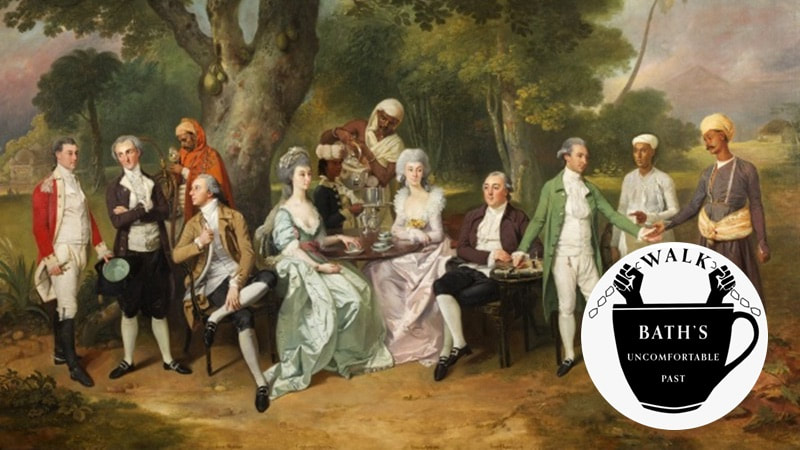
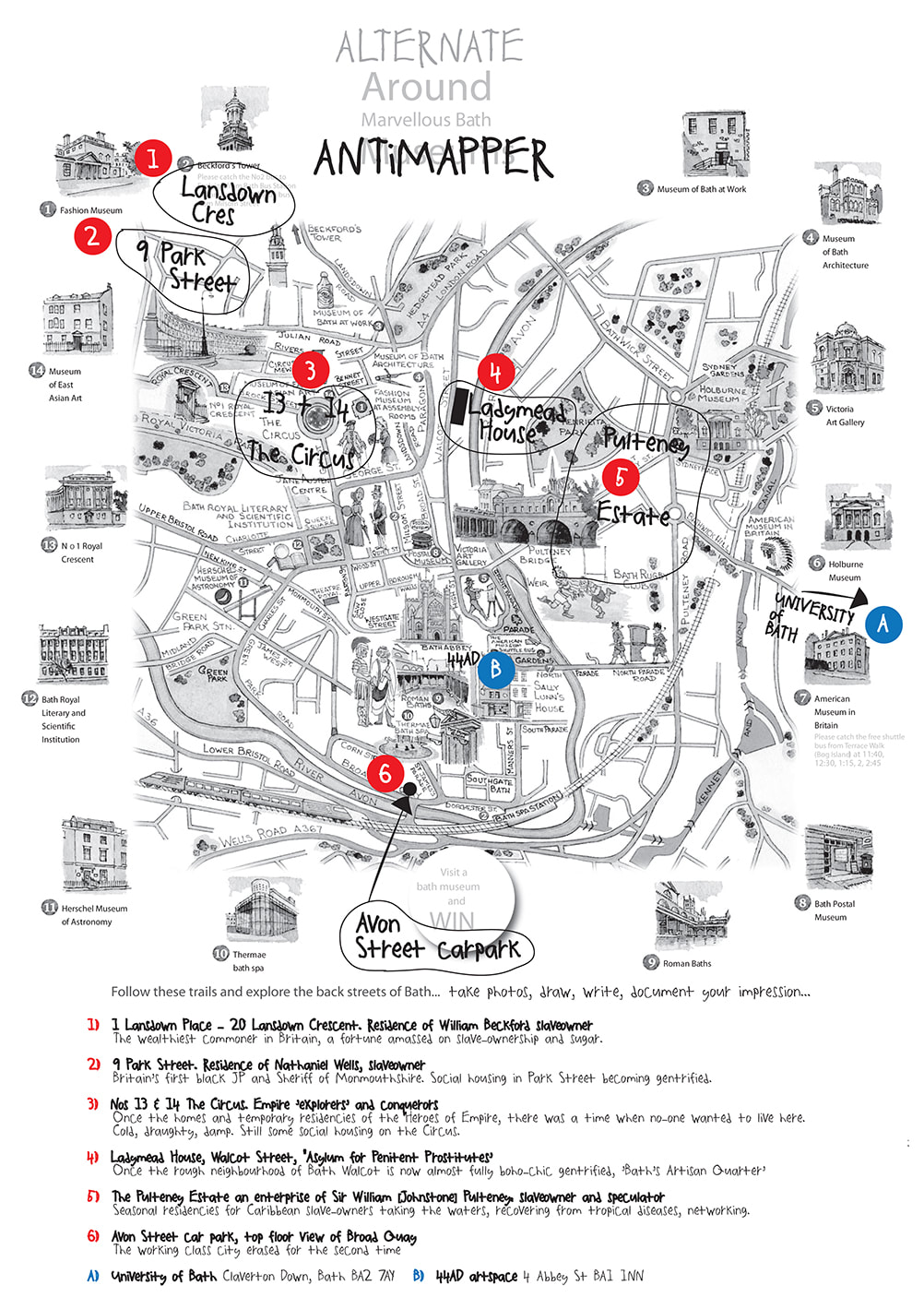
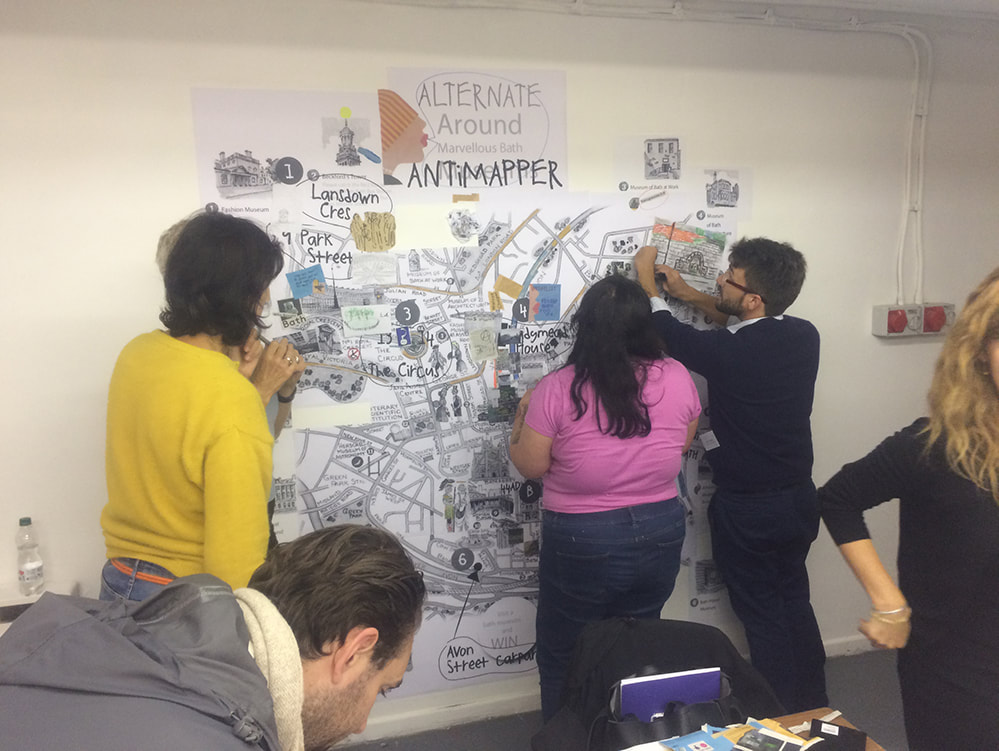
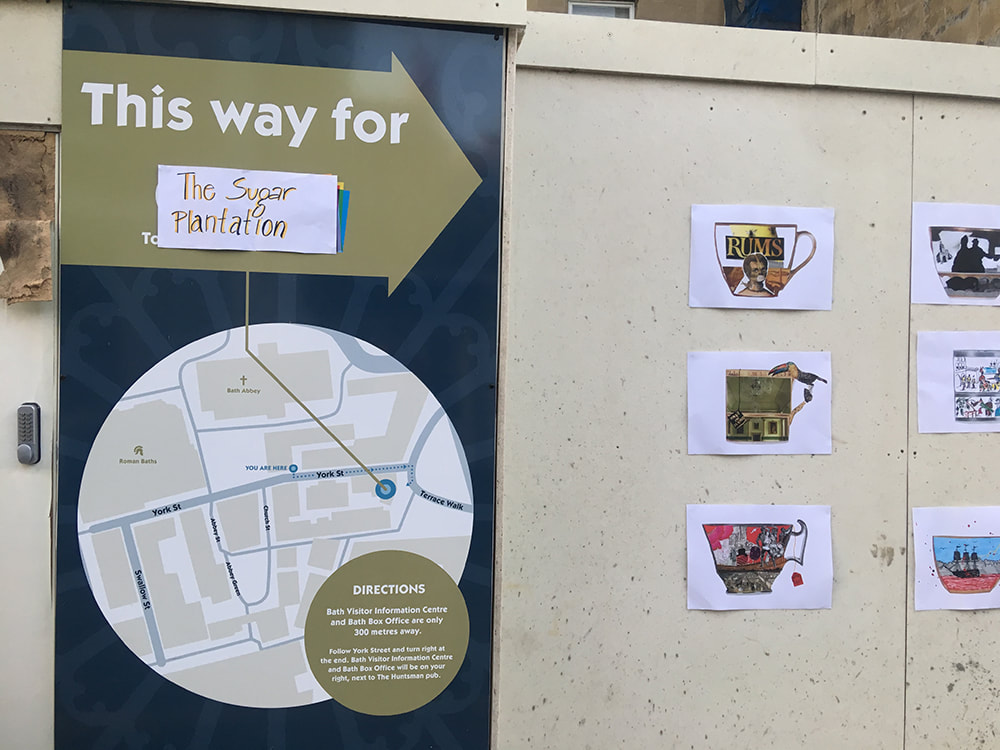
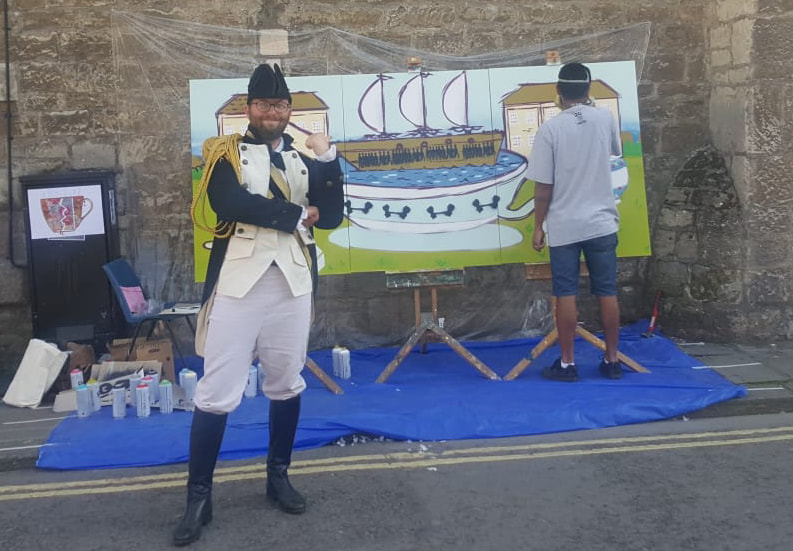
 RSS Feed
RSS Feed